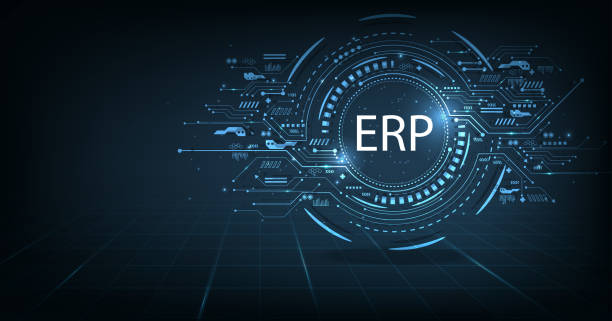Table of Contents
This guide offers a detailed guide on choosing the optimal Enterprise Resource Planning (ERP) solution for your business, outlining key factors to consider in making an informed decision.
• Understanding ERP and Its Benefits
An ERP system is a suite of applications that manages and automates various business functions, such as finance, human resources, procurement, and inventory. It improves efficiency by automating routine tasks, promotes data accuracy, enables real-time tracking of resources, and offers valuable insights through analytics for strategic planning. Understanding these benefits is crucial in selecting the right ERP solution for your business.
• Assessing Your Business Needs
Before diving into the sea of available ERP solutions, it’s crucial to evaluate what your business truly needs. Begin by conducting a thorough analysis of your current processes and identify bottlenecks. Are your inventory levels always accurate? Do you face issues in order management? These are some of the questions you should be asking. A great way to start is by involving key stakeholders, including department heads and end-users, in discussions. Their day-to-day interactions with current systems can provide invaluable insights into what features are necessary. This needs assessment will act as a blueprint in selecting an ERP that aligns with your business goals.
• Evaluating ERP Options
Once you’re clear about your business needs, the next step is to evaluate the available ERP options. The market is flooded with ERP providers each offering a unique set of features. Begin by listing out the features your business absolutely requires versus those that are optional but desirable. From Oracle and SAP to niche players like NetSuite and Microsoft Dynamics, each ERP solution has its strengths and weaknesses. Factors such as scalability, customization capabilities, and vendor reputation should also play a vital role in your evaluation. Often, relying on industry-specific ERP systems can bring additional benefits. Make use of demo accounts and trial versions to get hands-on experience before making a decision.
• Budget Considerations
Cost is always a significant factor in any business decision, and selecting an ERP system is no exception. The cost of ERP systems can vary widely, depending on factors such as the number of users, features included, and the level of customization required. Initial costs encompass software licenses, hardware or cloud services, and implementation fees. However, don’t overlook the ongoing costs of maintenance, training, and future upgrades. It’s vital to create a comprehensive budget plan that factors in all these ongoing costs. Opting for a cloud-based ERP solution can sometimes offer financial advantages, as it often involves a subscription model, spreading the cost over time rather than requiring a large upfront investment.
• Customization and Scalability
Scalability and customization are indispensable factors to consider, especially for growing businesses. An ERP solution should not just meet your current needs but should also evolve with your business. Evaluate whether the ERP system can accommodate an increase in users, transactions, and data volume. Customization options are equally important. Each business has unique requirements; the ability to tweak the ERP system to fit specific workflows is crucial. Ask the vendors specific questions about their customization capabilities and any additional costs involved. Also, consult with existing users through reviews or direct conversations to understand the flexibility of the system in real-world scenarios.
• Integration Capabilities
An effective ERP system should seamlessly integrate with your existing software and technologies. Integration capabilities are crucial because businesses today rely on various applications for specialized functions, such as Customer Relationship Management (CRM), Human Resources Management (HRM), and e-commerce platforms. A lack of integration can lead to data silos, causing inefficiencies and inaccuracies. Evaluate the ERP system’s compatibility with your current software stack. Many modern ERPs offer APIs and pre-built connectors to facilitate integration. Additionally, talk to your IT team to understand the technical challenges that may arise and prepare a plan for a smooth integration process.
• Vendor Support and Training
Once the ERP system is up and running, vendor support and training play pivotal roles in ensuring its success. An ERP implementation is a long-term investment, and having reliable vendor support can make a significant difference. Evaluate the vendor’s reputation for customer service, technical support, and availability of resources such as user manuals and tutorials. Training is equally important. An ERP system is useless if your staff cannot use it efficiently. Many vendors offer in-house training, online courses, and certifications. Confirm if these services are part of the package or if they come with additional costs. Effective training programs can significantly reduce the learning curve, ensuring quicker adaptation.
• Data Security and Compliance
In today’s digital age, data security and compliance are more critical than ever. An ERP system houses sensitive business information, including financial data, employee records, and customer details. Ensuring that the ERP system adheres to industry standards and regulations is crucial for protecting this data. Before making a selection, inquire about the system’s security features, like encryption, user authentication, and access controls. Additionally, consider compliance requirements relevant to your industry, such as GDPR, HIPAA, or IFRS. Ensure that the ERP solution supports these compliance needs out-of-the-box or can be configured to meet them. A robust data security framework within your ERP will safeguard your business against data breaches and potential legal ramifications.
• Conclusion
Selecting the perfect ERP solution for your business is a multifaceted process that requires meticulous attention to various factors. From understanding the core benefits of ERP systems to assessing your unique business needs, every step matters. Budget considerations, customization, scalability, and integration capabilities should all align with your business goals. Don’t underestimate the importance of vendor support, training, and robust data security measures. By thoroughly evaluating these critical aspects, you will be well-equipped to make a well-informed decision. The right ERP solution will not only streamline your operations but will also pave the way for sustainable growth and long-term success.



